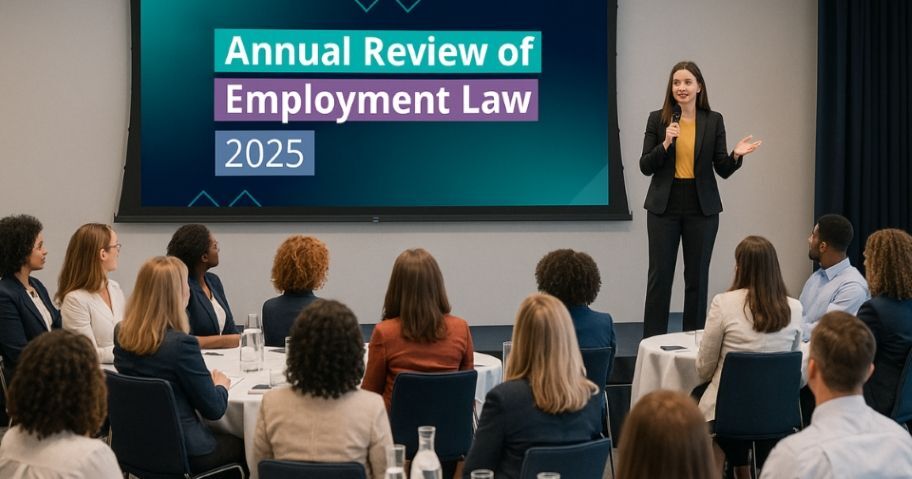Jason Elliott was called to the Bar of Northern Ireland in 2013 and is the Associate Head of School of Law at Ulster University. As a practising barrister, he has developed a largely civil practice representing individuals, companies and public bodies in litigation. This covers a wide range of areas including personal injuries, wills and employment law. In terms of employment law, he has represented both applicants and respondents in the Industrial Tribunal. At Ulster University, Jason lectures extensively on the civil areas of practise such as Equity and Trusts and delivers employment law lectures for both undergraduate and postgraduate students.
Dismissal unfair where there were procedural failings in relation to the disciplinary hearing including not testing the evidence of the individual who raised the accusation against the claimant.
The claimant was employed as a Financial Guide in the respondent’s Mortgage Advice and Financial Guidance Team. He commenced employment in August 2015 until he was dismissed for gross misconduct in July 2024.
The alleged misconduct took place in November 2023 when comments were allegedly made by the claimant to a younger female colleague relating to the claimant’s penis, sexy underwear and what the youngest age the claimant, a 40-year-old, could ‘go with’. The respondent further found that the claimant had said that he missed the days when ‘we could hit women’.
The respondent found that the remarks made were breaches of the Bullying and Harassment Policy. Initially, the claimant was suspended on full pay. During the investigation the claimant admitted making the remark about the youngest that someone of his age would go with but denied the other remarks. The issue related to the process that had been taken in terms of the decision to dismiss the claimant.
The Tribunal outlined that the stakes for the claimant were extremely high and that it would amount to the removal of his profession. He had worked in financial services for 24 years. The Tribunal found that the respondent was obliged to investigate potentially exculpatory factors just as diligently as those which point towards guilt. The Tribunal acknowledged that this could lead to some uncomfortable questions for an individual coming forward about an uncomfortable situation and comments, but it is what the situation required.
The Tribunal found that there was a flawed approach to the task of determining the credibility of the claimant against that of colleague A who the comments were allegedly made to. This was on the basis that:
- The disciplinary hearing heard directly from the claimant and made adverse findings about his credibility. Colleague A’s evidence was purely from the notes.
- The decision maker was found to make unusual findings relating to demeanour. This included overlooking some denials from the claimant and citing that some of the denials were not firm enough. She suggested that the claimant would be lying if she had a reasonable doubt that he was telling the truth.
- The claimant was asked why colleague A would make up the comments – he did not have an answer – but that was insufficient to amount a reasonable investigation of A’s motivations.
- The issue was not solely on the truth but also matters such as exaggeration, misperception or over-sensitivity. These aspects could have tainted the evidence of colleague A but they were not explored.
- Other colleagues were interviewed relating to other allegations to try and develop a propensity for such comments. No similar investigation was done in terms of colleague A’s propensity to make unwarranted complaints.
- The initial letter outlined three charges but there were actually five. This meant that the claimant was not given sufficient notice of those charges.
- Some comments were found to have been admitted when the interview notes clearly show the claimant denying them.
- It took 4 months and 3 weeks for a disciplinary outcome. This was undue delay.
Based on these reasons, it was found that the dismissal was not fair. The internal appeal did not cure those wrongs.
The Tribunal found that he had made the comment about ‘going with’ someone younger but found on the balance of probabilities that the other two original comments were not made. Considering that original comment there was a 15% reduction for contributory fault. Additionally, there was a 50% Polkey reduction based upon the likelihood that the dismissal would have been made and fair if the right process had been in place.
An interesting case about the way in which disciplinary processes should be conducted. The Tribunal acknowledged that it could be uncomfortable to test the evidence from someone who said they were left uncomfortable by comments made by a colleague. That being said, the Tribunal makes it clear that it is required for fairness and to be able to properly investigate credibility especially when there are really only two key witnesses to the issue. The fact that there was a different testing of that evidence at the disciplinary hearing found that the dismissal was therefore unfair.
You can read the case in full here.
Continue reading
We help hundreds of people like you understand how the latest changes in employment law impact your business.
Please log in to view the full article.
What you'll get:
- Help understand the ramifications of each important case from NI, GB and Europe
- Ensure your organisation's policies and procedures are fully compliant with NI law
- 24/7 access to all the content in the Legal Island Vault for research case law and HR issues
- Receive free preliminary advice on workplace issues from the employment team
Already a subscriber? Log in now or start a free trial
 Practical Skills for Confronting & Preventing Conflict at Work
Practical Skills for Confronting & Preventing Conflict at Work




